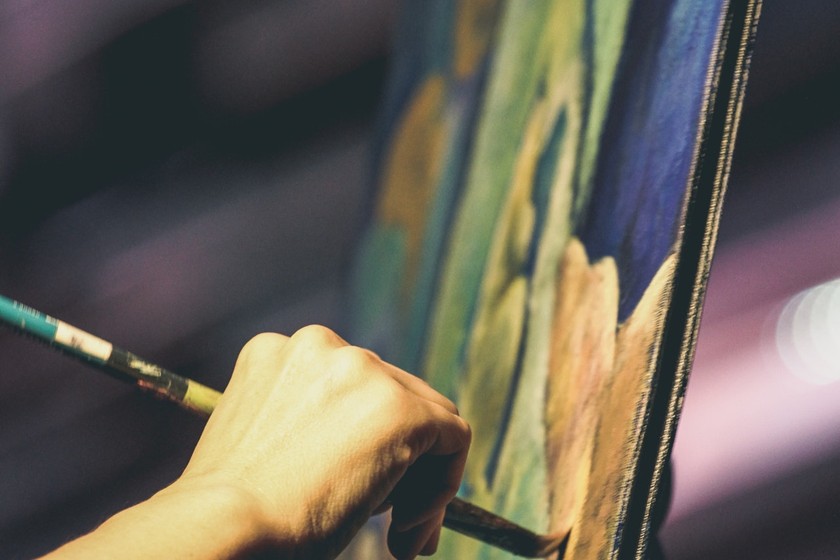
At UConn, a first-generation college student is defined as someone whose parents did not attend a four-year institution. First Gen students are embarking on their own paths by attending college without the benefit of firsthand insight from their parents and guardians and this presents unique career planning challenges. Now, couple that with pursuing a career in the arts—first gen students with creative aspirations may find themselves lacking the guidance and support that they so desperately need.
If you are a first gen student on a creative career track, you may be experiencing pressure and uncertainty about your decision to pursue what many see as an unconventional path. Being the first in your family to obtain a college degree may come with the expectation to secure a “good” or “stable” job. Medicine, law, and business are considered traditionally secure and highly valued career paths. Often when non-creatives hear anything arts-related as a career idea, the stereotype of the “starving artist” comes to mind. Well-meaning family and friends may comment that your artistic pursuit is a great hobby, but not a real career. This type of feedback can be incredibly discouraging. However, it is usually because of a lack of knowledge and understanding of careers in the arts. If there are no examples of successful creatives in one’s immediate circle, it is easy to label the arts as a nice hobby, but not a viable source of income. Before giving up hope, consider these three career strategies for emerging creative professionals.
Find a mentor
A knowledgeable mentor can provide valuable insights and advice from an insider’s perspective. The art world is competitive, so it is important to receive practical information and guidance from someone who has been in your shoes (or similar shoes) and has achieved some success. While you may be honing your craft in classes or the studio, a mentor can help you to boost your professional skills and hold you accountable for career-related action items. Procrastinating on updating your website, following up on a potential lead, or cultivating your LinkedIn page? Let your mentor know the areas you are struggling with—a good mentor will provide that extra nudge to help you to stay on track. However, for the relationship to be successful, you will need to be proactive. Always come to your mentor meetings with questions as well as updates on your progress.
Build your network
Finding a mentor and other professional connections will require some outreach. Creating art is often a solitary experience, requiring long studio hours. However, making connections with others is an important aspect of being an artist. Art is an enriching part of our culture and community, so it makes sense for artists to engage with other people to inform their work, collaborate, and discover avenues to share art with others. At the same time, you will gain valuable career opportunities. Follow and engage with your favorite local artists on social media, connect with arts professionals on LinkedIn, and join artist associations such as the Connecticut Arts Alliance. Attend gallery openings, art fairs, open studios, and other events. When you make a new connection, be sure to get their business card/contact information to follow up. Successful networking is not just about meeting new people, it is all about cultivating and maintaining relationships. Stay in touch and offer value to the relationship by introducing people to one another and sharing information. Do you know about a show that one of your contacts would be perfect for? Make the connection. When you focus on giving you will be likely to receive, and this creates mutually beneficial professional relationships and a productive network.
Develop additional skills + expand your professional identity
Let’s make something clear—this section is not suggesting a “plan B” or the cliché snarky advice “don’t quit your day job.” Being an artist requires grit, tenacity, and flexibility. There will be wonderfully fruitful times when art pays your bills and not-so-great times when it will not. To continue to create, you will need a steady flow of income. Tapping into your additional skill sets does not mean you are giving up on art, it means you are increasing your value and opening additional doors for yourself. Think about how these skills fit into your creative professional identity. As you engage in the art world, you will absorb the many facets that make it all work. What are these other areas that interest you? In addition to being an artist, could you be an excellent grant writer, social media marketer, curator, event planner, educator, public speaker, or consultant? As an artist, it is advantageous to think like an entrepreneur. An entrepreneurial mindset will enable you to see the big picture and be aware of opportunities where you could fulfill a need in different ways. An artist’s strength is the ability to generate new, creative ideas. Use this superpower to create both art and opportunities for yourself.
